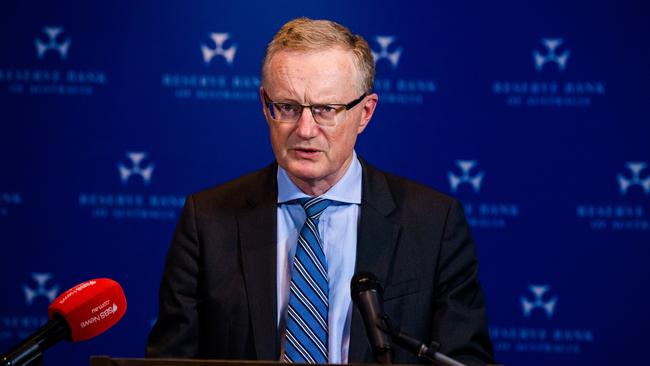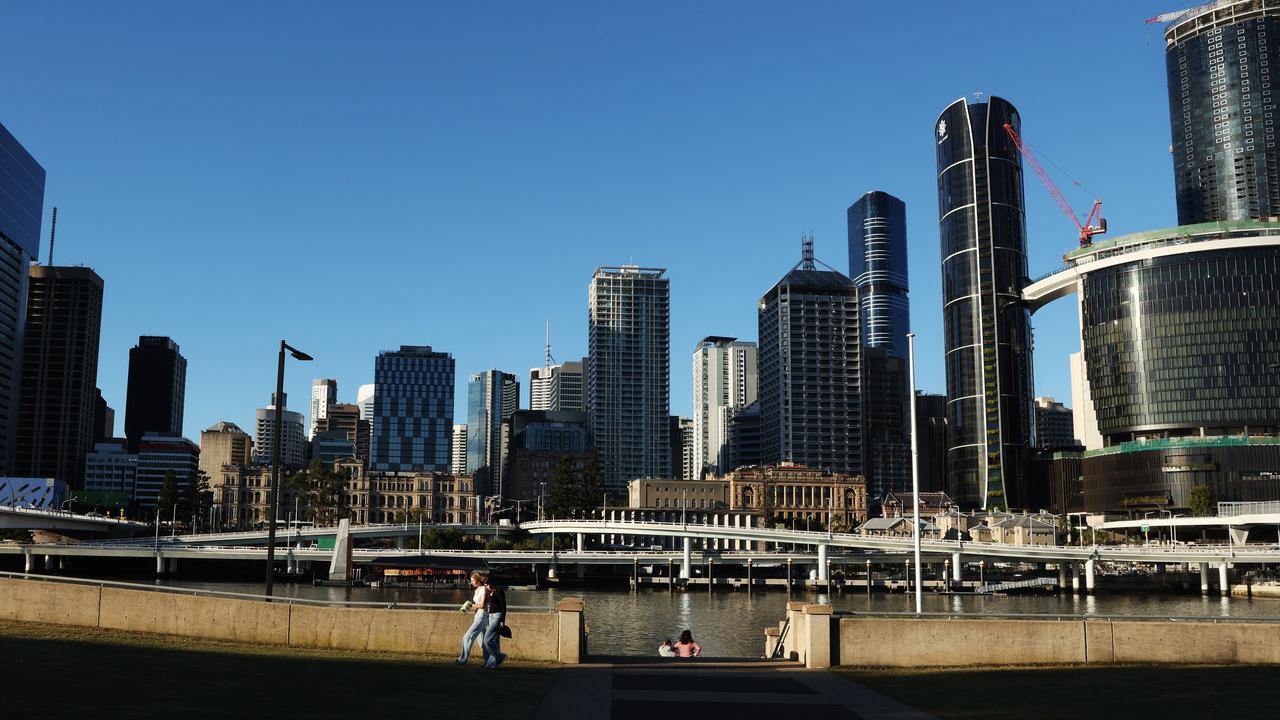Reserve Bank’s Lowe says closed borders for longer mean higher wages
Philip Lowe warns a faster-than-anticipated lift in wages would ultimately come at the cost of lower investment and a ‘less dynamic economy’.

Business
Don't miss out on the headlines from Business. Followed categories will be added to My News.
Reserve Bank governor Philip Lowe says leaving Australia’s border closed for longer would lead to higher wages but it would come at the cost of lower investment and a “less-dynamic economy”.
Covid travel restrictions had left 250,000 fewer foreign workers in the country compared to March last year, Dr Lowe said, describing it as “a significant decline” that had triggered severe labour shortages in industries, such as hospitality that are reliant on temporary visa holders.
As a result, “some workers have received sizeable wage increases”, Dr Lowe said, although rises “remain modest for most”.
“Most firms retain their strong focus on cost control, with many preferring to wait things out until the borders open, and to ration output in the meantime.”
The RBA governor said he assumed the government would find a way to import skilled workers over the coming six months to plug those gaps in the workforce.
But “if the borders remain completely closed and we can‘t get workers into the country that are needed for firms to expand and invest, then I think we will see more wages growth”, he said.
Dr Lowe conceded that some people could be attracted to the prospect of higher pay in the short term thanks to lower skilled migration. But he warned of longer-term consequences, saying “we will see less investment, less confident businesses, lower output and ultimately a lower capital stock and a less-dynamic economy, so it’s a real first order issue”.
“Having overseas workers come into the country is incredibly beneficial,” Dr Lowe said.
He said if miners not been able to tap the global labour force during the mining boom, which peaked close to a year ago, then “we wouldn’t have had all that investment which is fundamental to Australia’s prosperity”.
In a speech to the Economic Society of Australia, Dr Lowe said pushing wages growth consistently above 3 per cent – from just 1.5 per cent today – was a necessary precondition for inflation to sustainably achieve the RBA’s 2-3 per cent inflation target.
He described the post-Covid labour market recovery as “remarkable”, with more Australians employed now than before the pandemic and the unemployment rate at 5.1 per cent.
“Back in February, we expected the unemployment rate to now be around 6.5 per cent and not reach the low 5s until the second half of 2023,” he said.
However, he added it was “noteworthy that the positive surprises on jobs have not been matched with equivalent surprises on wages and prices”.
He said the last time wages growth was above 3 per cent “was a decade ago”, and that “deep and powerful structural factors at work” would mean wages would only “grind higher”.
“While it is hard to be sure, it is likely that the unemployment rate will need to be sustained in the low 4s for the economy to be considered to be operating at full employment. To achieve this, a further period of strong employment growth will be required.”
Dr Lowe reiterated the conditions would only be ripe for rates to increase from their historic low of 0.1 per cent in 2024.
In contrast, there is a growing consensus among private sector economists that the pace of the recovery will force the RBA to lift in late 2023, while investors are pricing in tightening from 2022.
Dr Lowe conjectured that the private sector was betting “the closure of borders will lead to a hothouse environment and wages will pick up more quickly”.
He said this was “possible”, but that “a more plausible scenario is that over time the borders open again and some of the hothouse pressure points in the labour market dissipate”.
As property values surged by more than 15 per cent over the year to June – the fastest pace in close to two decades – Dr Lowe ruled out hiking rates to “choke off housing price increases”.
“If borrowing is unsustainable we would be talking to APRA about prudential tools (but) we are not going to use monetary policy to deal with rising house prices,” he said. “If we were to use interest rates to slow housing prices it would mean fewer people would have jobs. Wages would be lower and inflation would be lower, and that’s not a particularly good trade-off.”
Originally published as Reserve Bank’s Lowe says closed borders for longer mean higher wages



